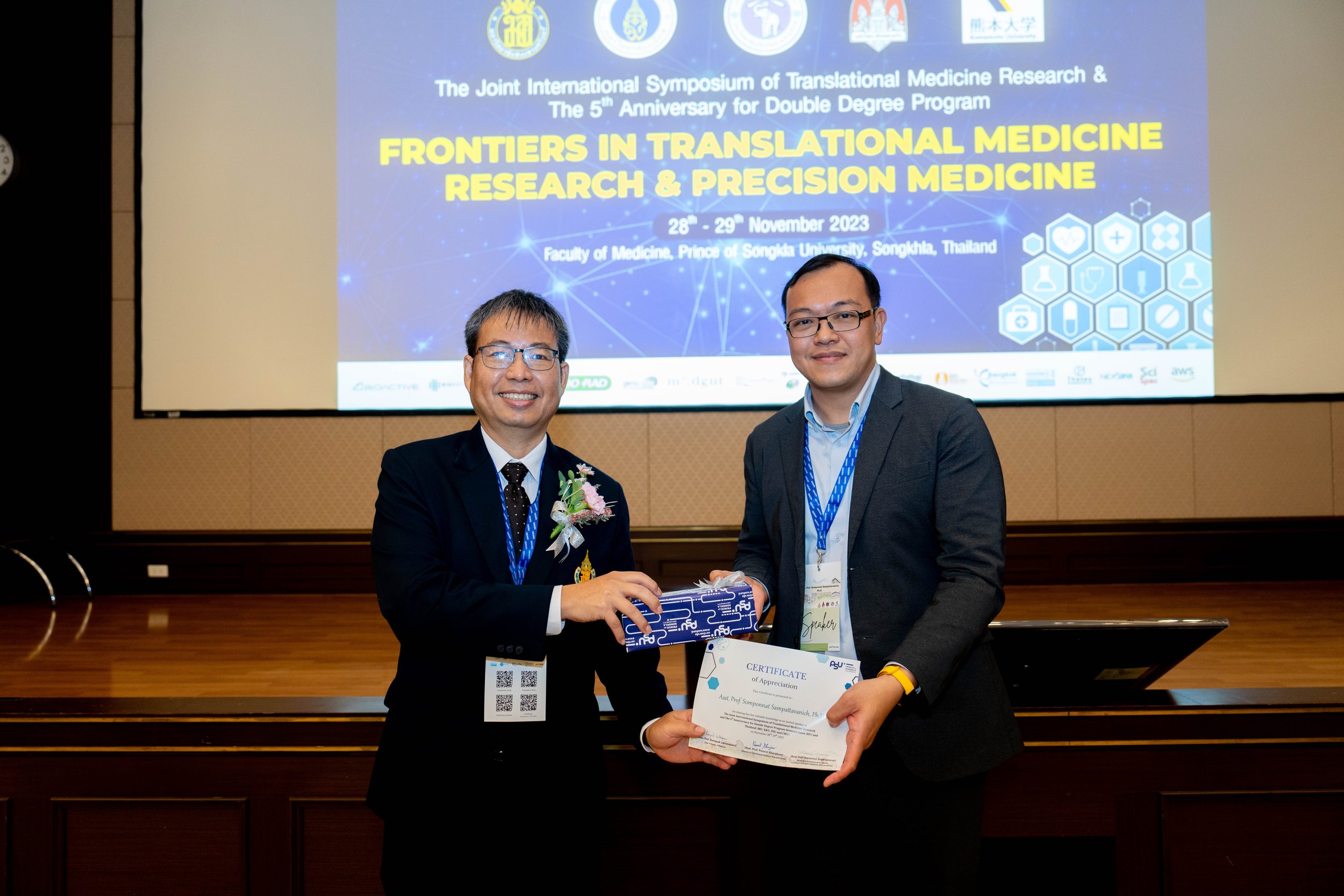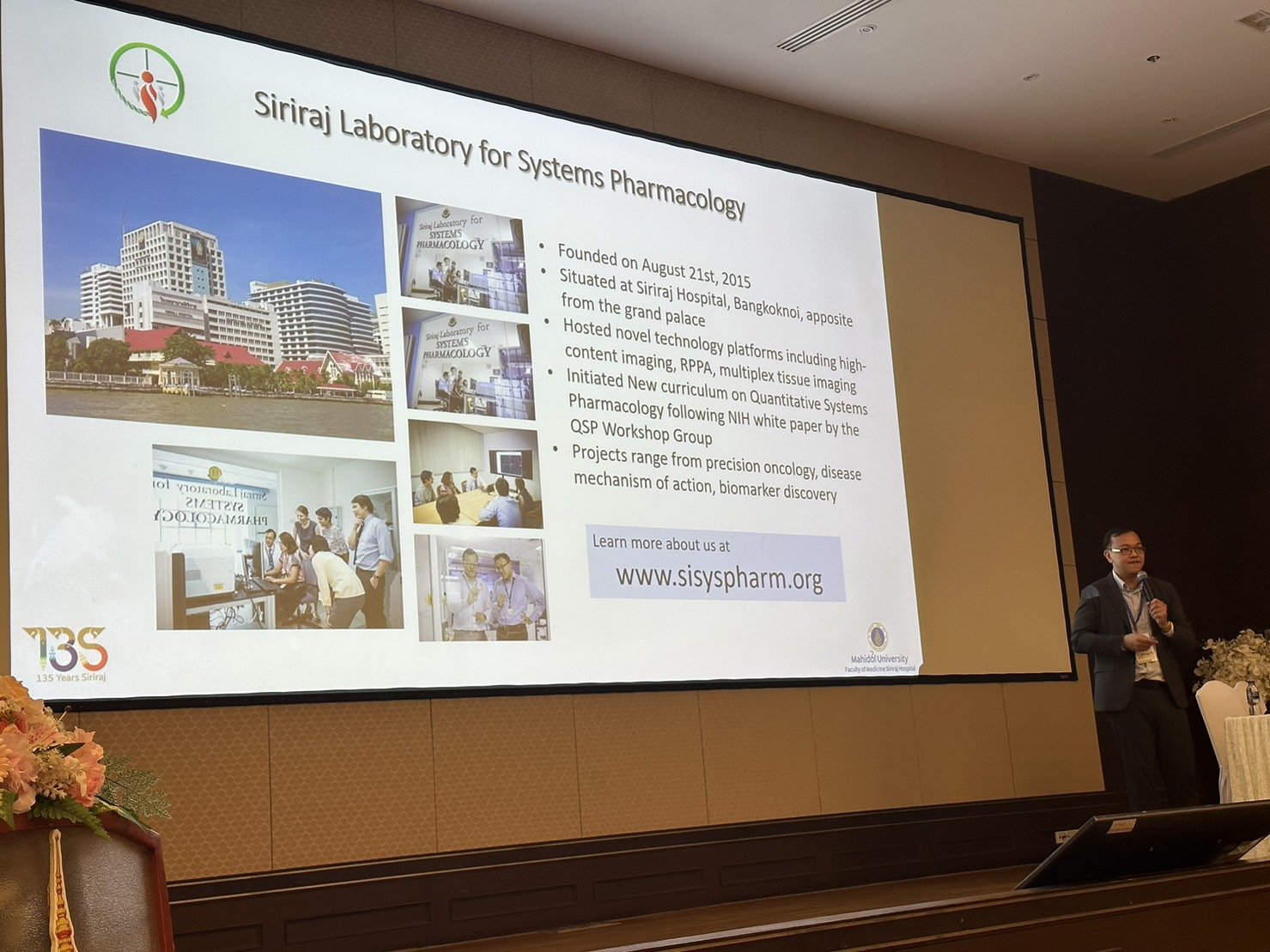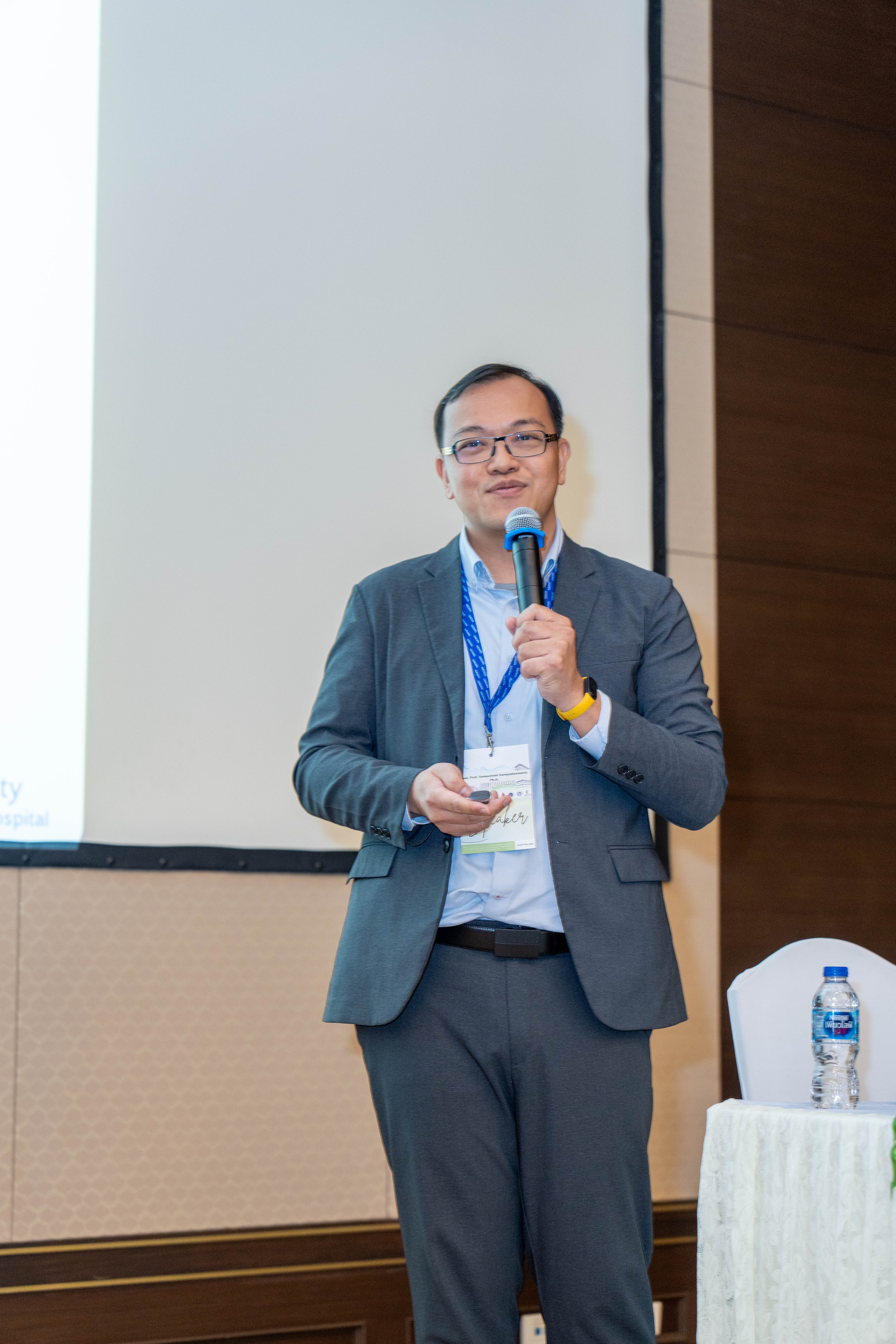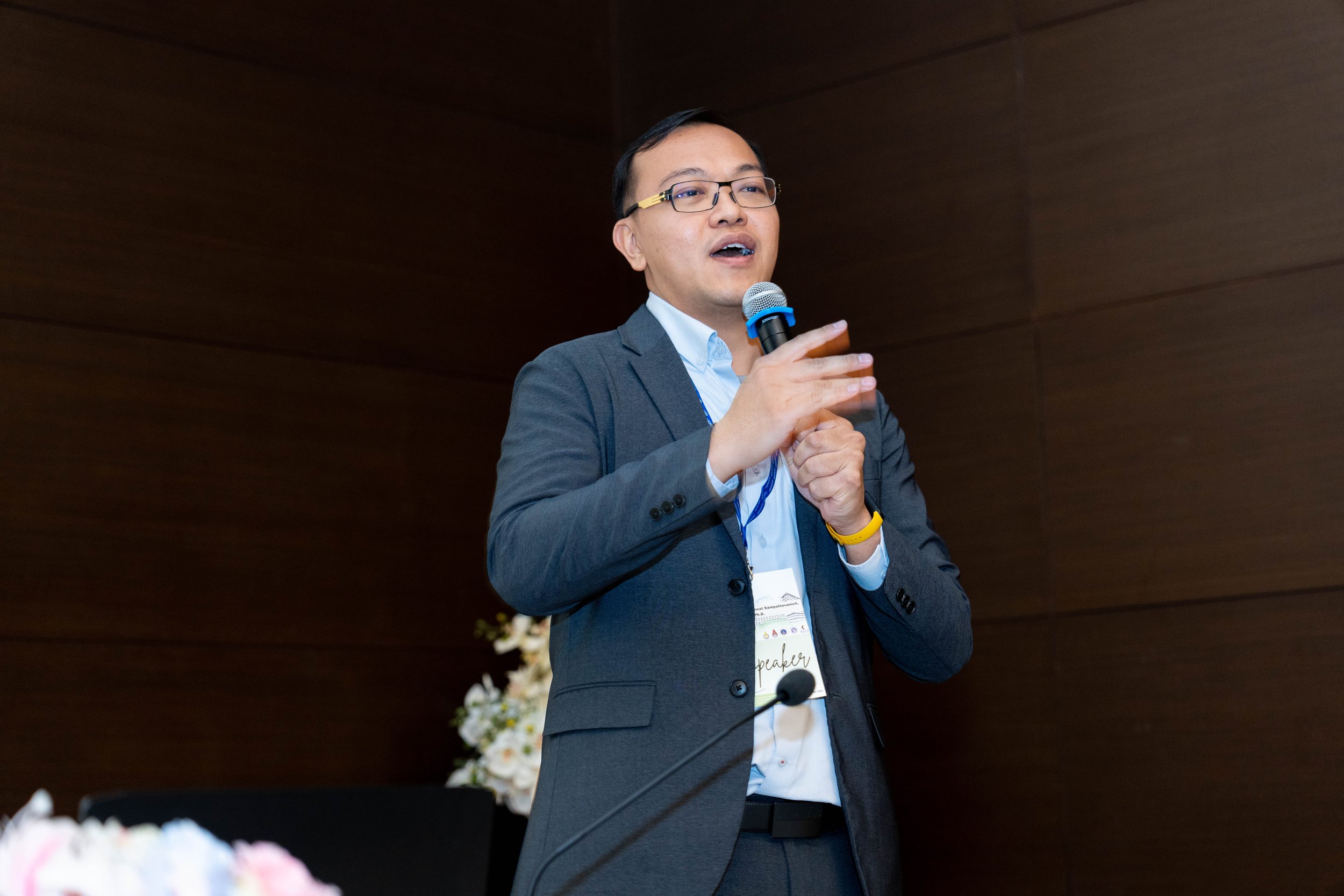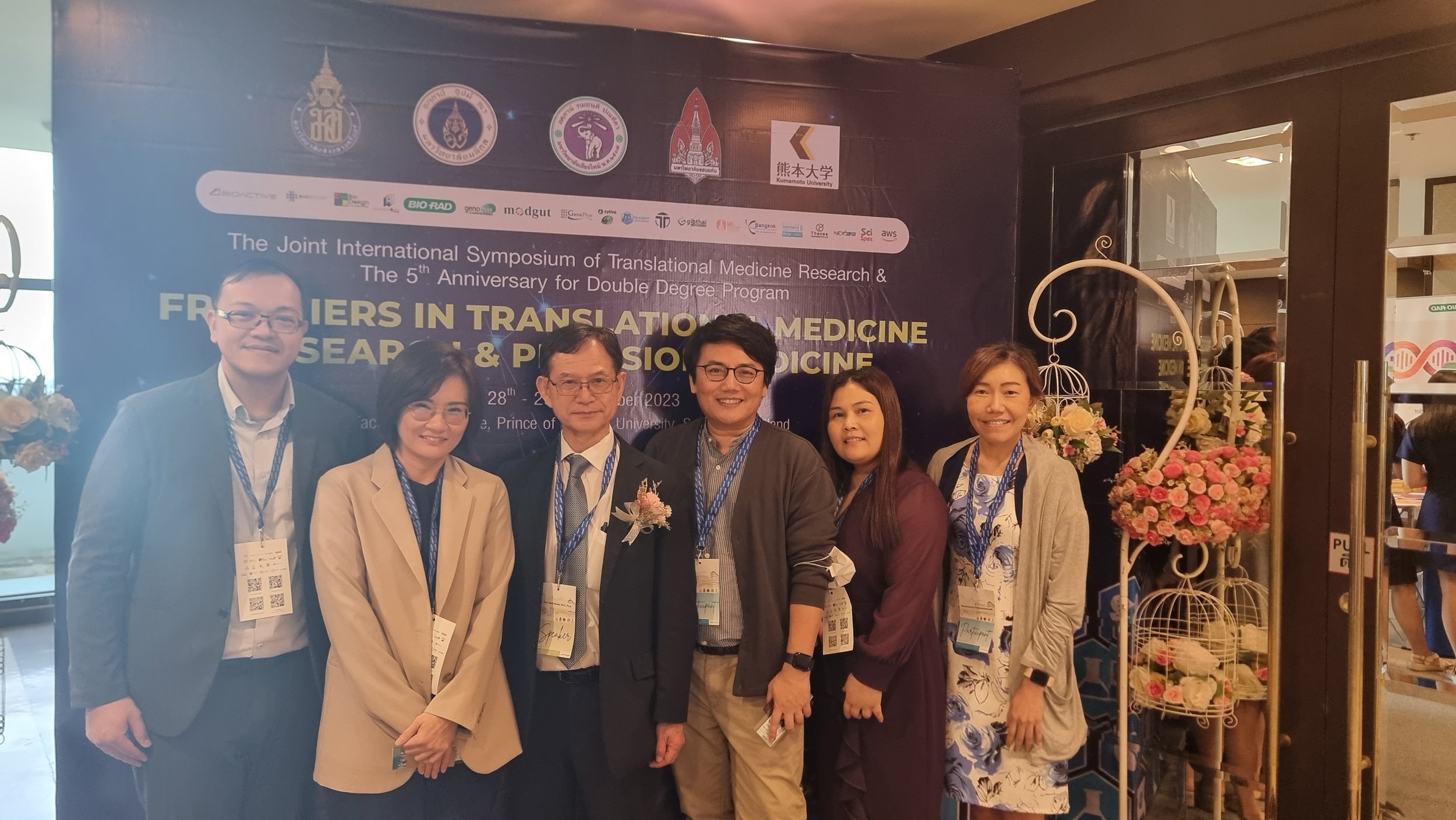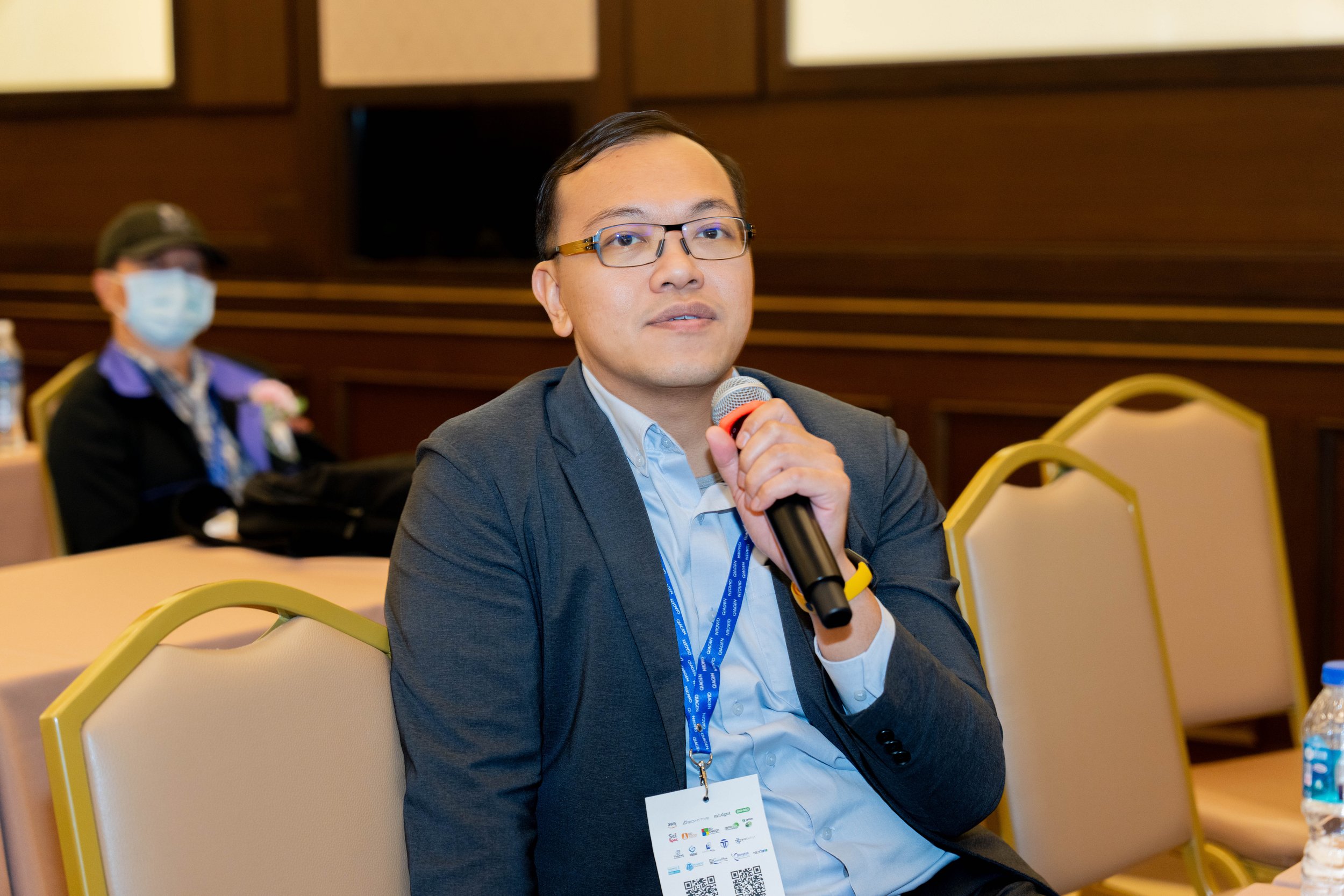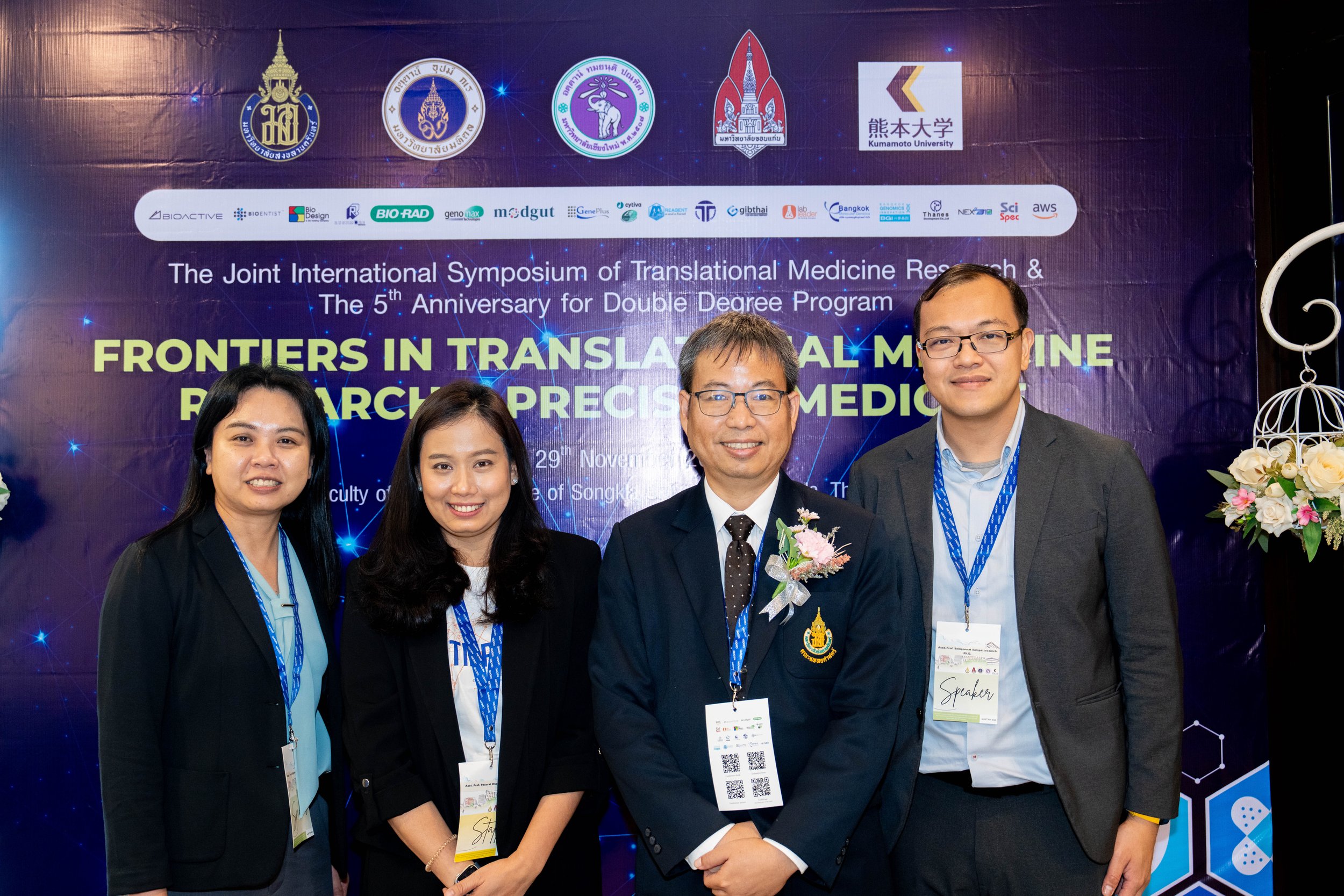Precision Medicine Advances Highlighted by SiSP PI at PSU-Hosted International Research Symposium
The joint international symposium on translational medicine, focusing on research and precision medicine, was held on November 28-29, 2023, and showcased a remarkable gathering of experts from various esteemed institutions. This event, featuring prominent speakers from Kumamoto University, Prince Songkhla University, Mahidol University, and Chiang Mai University, served as a platform for sharing groundbreaking advancements in the field of translational medicine. The symposium also celebrated the success of the double degree programs established between Kumamoto University and several universities in Thailand, highlighting the international collaboration in the academic arena.
One of the key highlights of the symposium was the insightful presentation by Dr. Somponnat Sampattavanich. Dr. Somponnat, renowned for his contributions to precision medicine in cancer treatment, provided an engaging update on the latest advancements in systems-based drug discovery and biomarker identification for rare cancers. His talk particularly emphasized the innovative approaches being undertaken in the battle against cholangiocarcinoma and pancreatic cancer.
Central to Dr. Somponnat's presentation was the progress made through the organoid platform, which is part of a pioneering initiative supported by the PMU C grant. This platform represents a significant stride in personalized medicine, allowing for the cultivation of organoids that mimic the complex structure and functionality of cancer tissues. This approach not only aids in understanding the unique characteristics of each patient's cancer but also paves the way for the development of more effective, tailored treatments.
Furthermore, Dr. Somponnat discussed the remarkable advancements in spatial biology, particularly through the application of cyclical tissue immunofluorescence imaging techniques. This cutting-edge method has been instrumental in providing a deeper understanding of the tumor microenvironment, offering insights into how cancer cells interact with their surrounding cells and structures. The application of this technique in the study of both cholangiocarcinoma and pancreatic cancer has opened new avenues for discovering potential therapeutic targets and developing more precise treatment strategies.
The symposium attendees, comprising researchers, clinicians, and students, greatly appreciated the depth and relevance of Dr. Somponnat's presentation. His work stands as a testament to the power of collaborative efforts in advancing the frontiers of cancer research and treatment. The joint international symposium not only highlighted the latest developments in translational medicine but also fostered a spirit of cooperation among leading institutions, setting the stage for future breakthroughs in the field.
